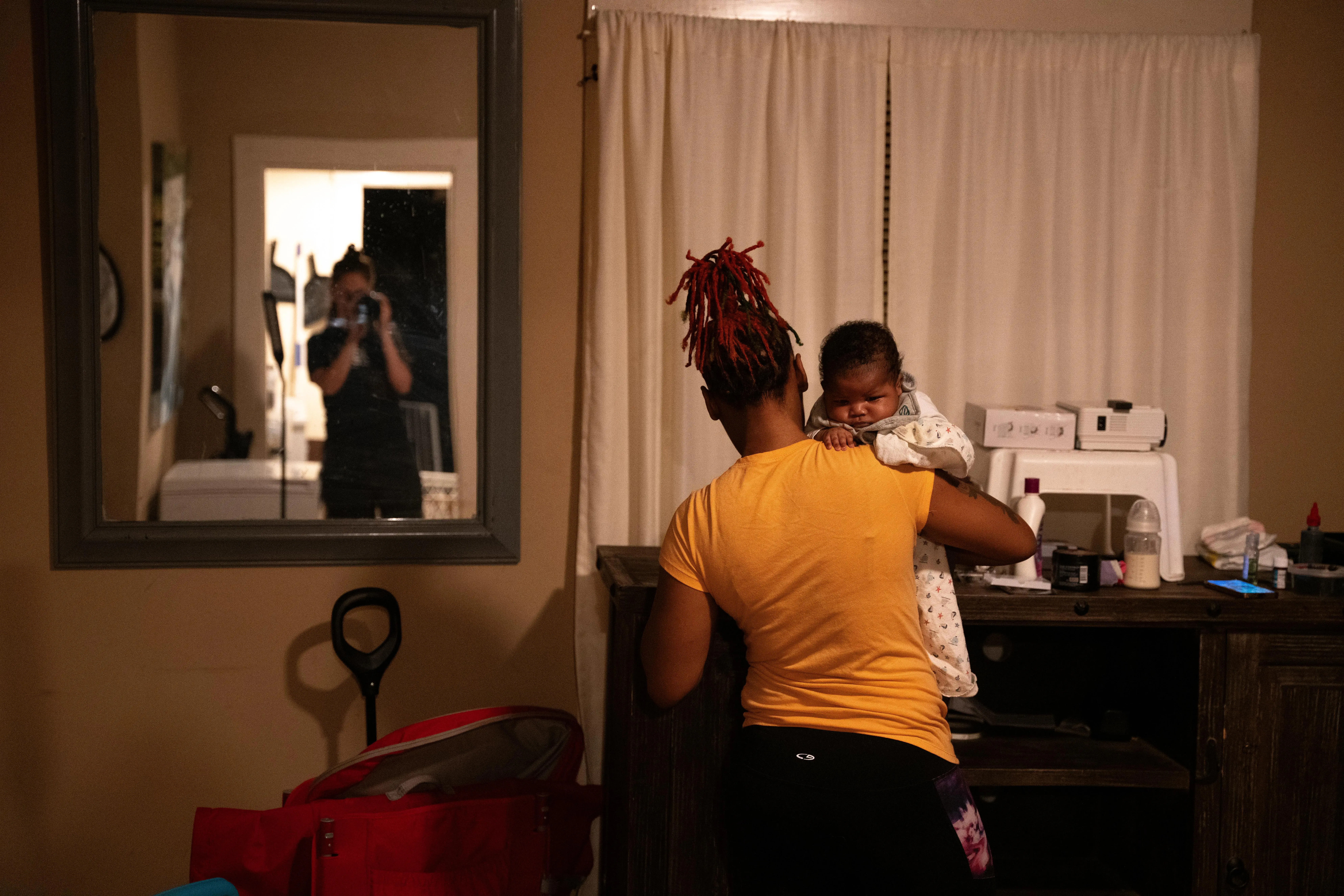
When statistics reveal that more than 80% of pregnancy-related deaths are preventable and that 65% of them happen during the postpartum period, I wonder why everyone is not talking about it. I wonder why people with power are not implementing immediate change to prevent these unnecessary deaths. I wonder why the postpartum period remains so hidden. And I also wonder why more stories are not being told by the media.
I believe there are many reasons, but my trip to Arkansas reminded me of one.
Rudy Gibson, the mother featured in my story, and I planned to spend a fair amount of time together while I was in Arkansas, but that quickly changed. I already knew Rudy was a busy woman taking care of four children. Right before I arrived, she was offered a full-time job at a day care center. It was a great fit because she could bring her youngest kids to work with her. So we pivoted and planned to just meet in the evenings.
The day I arrived, Rudy’s daughter had a seizure. Following that, nearly everyone in her family got sick. Rudy spent hours in the emergency room, had multiple sleepless nights caring for her sick kids, was going to work during the day, and on top of it all, was picking up evening shifts applying eyelashes for additional income. She was completely exhausted. Our meeting times kept shifting, and I was worried we would never actually meet.
While Rudy and I kept trying to find a time to meet, I was also calling home regularly to check in on my 18-month-old son, Kenji, and my husband, Mike. Just before I took off for Arkansas, Mike and I hugged and prayed for an extremely smooth and uneventful week of solo parenting for him. As soon as I left, Mike got sick. Kenji was fussy. And during one, fateful FaceTime video call, I watched Kenji tip over a dining room chair while Mike was cooking dinner. The chair crashed down onto his big toe. The toe instantly turned black and was bleeding, Mike was trying to console our child, who was screaming for “Mama,” and I just sat on my Motel 6 bed, thousands of miles away, watching through the screen. Soon after, Kenji got Hand, Foot, and Mouth disease. I felt incredibly guilty for not being there.
Rudy’s experience—juggling absolutely everything while running herself ragged—reminds me why her story is so important. She is an example of how women do not have the time to prioritize their own rest and recovery after giving birth. And my experience reminds me how challenging it is for mothers to be journalists, particularly visual journalists who cannot do the work remotely.
Rudy graciously let me enter her chaos to document her story. I recognize how challenging that must have been, and I’m grateful to her for that. At home, we had some of our own chaos going on as well.
This note is not to equate our experiences in any way, but, rather, to reflect on the complexities many mothers navigate. I love and am so grateful that this story is one about a new mother by a new mother. However, it did not come easily. It is easy for mothers like Rudy to be unreachable, and it is easy for mothers like me to not be journalists.
Despite these challenges, I hope for more stories about mothers by mothers that shed light on our maternal health crisis so that, hopefully, we will all begin to listen.









